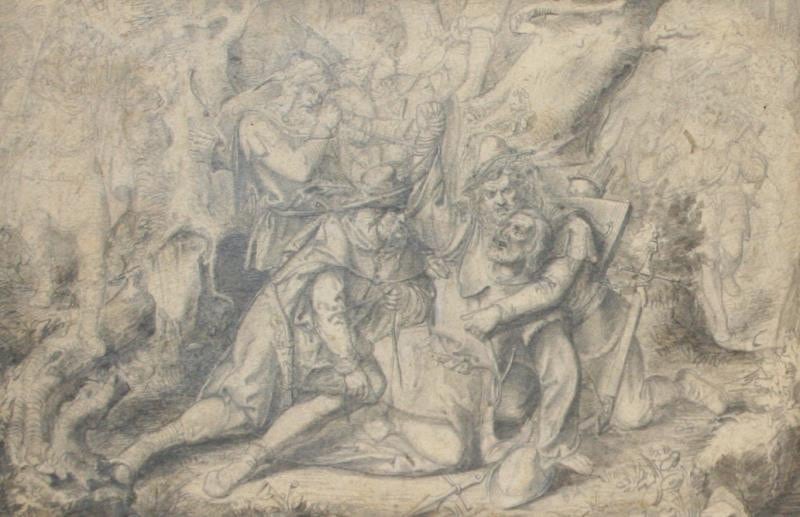Mírumilovné slovanské rody  Díky za počtení
Díky za počtení 
9.2.1003 Bloody Feast at Vyšehrad
Categories: Years of war and revolution , Calendar

"A hateful and wicked family," is how the chronicler Kosmas describes the Vršov family. It is with them that one of the darkest moments in Czech history during the Middle Ages is connected. During the so-called Bloody Feast at Vyšehrad on 9 February 1003, the family was massacred.
This terrible massacre took place after the Vršovec were invited by Boleslav III. Rysavy to a feast. Along with the Přemyslids, Slavs, Munics and Teptics, this was a powerful medieval family. Historians still know almost nothing about their origins or where their power came from. The first mention of them appears in connection with the year 995, when the wife of one of the Vršovci committed adultery and fled to Bishop Vojtěch, who imposed a curse against the Vršovci. This exacerbated relations between this family and the Slavnicks, among whom the bishop belonged.
The Slavs even sought allies against their enemies in the German imperial court, but also in Poland, where they wanted to ally with the Přemyslids' rival, Boleslaus the Brave. Subsequently, they also helped the German Emperor Otto III during his campaign against the pagan Odobrits. The Vršovci found an ally in Boleslaus III. They even captured and tortured his hostile brother Jaromir while hunting. He was ritually sacrificed under a sacred oak tree.
But in 1003, Boleslaus III had a falling out with the Vršovci for unknown reasons, and the family rose up in rebellion. At the same time, they constantly made claims to the Czech throne, threatening the Přemyslids. Due to the tense situation, Boleslaus III had to flee to Bavaria, where he was imprisoned and then fled to Poland.
In January 1003, however, he promised to forgive the Vršovci. But he only wanted to lure this family to Vyšehrad, where a terrible massacre occurred, which provoked an uprising in the country. Although this act weakened the Vršovci noticeably, they eventually began to grow stronger and threatened the Přemyslids again. And so in 1008, on the orders of Prince Svatopluk, they were totally liquidated, during which some 3,000 people were slaughtered. "It was a total victory against which nothing could be objected," writes Jan Bauer in his book Mysteries of Czech History.
The Vršovci thus paid the price for constantly plotting against the ruling princely family, yet they still held on to power. According to Kosmas, this included, for example, Kochan, whom he describes as a villain and the worst man of all. Apparently, he was one of those who captured Jaromir during a hunt, who was subsequently castrated. "The highlight of the Vršov fun was when they jumped on horses, drunk and exuberant, over the naked body of the bound and probably scared to death prince," Bauer adds.
Sources: Jan Bauer: Mysteries of Czech History, www.moravska-galerie.cz, www.wikipedia.org
The article is included in categories:



